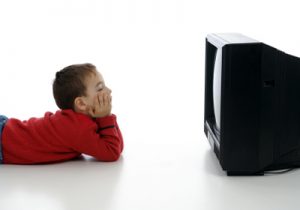What Kids Really Need from Their Parents

Being a parent comes with a lot of pressure to do right by our kids. But boiled down to specific, daily decisions, this pursuit also comes with a lot of confusion. It’s easy to get caught up in the checklists of items that we hope will benefit our children: special classes, programs, and parenting methodologies. We puzzle over everything from which snack is best for our toddler to which school is best for our teenager. Yet, what our kids need from us on a basic, emotional level is a bit more straightforward than we may think.
Research in attachment theory tells us that the most important way to help our kids feel secure and form healthy attachments is to make them feel safe, seen, and soothed. But what does that entail? Does making them feel safe mean we should keep them with us 24/7 or encourage them to build other secure relationships? Does soothing them mean letting them avoid situations that challenge them or teaching them tools to handle their emotions? Does making them feel seen mean we bolster their self-image with heaps of praise or that we pay attention, learn them, and become attuned to their needs? Meeting our child’s emotional needs is not easy or without challenges, but it is something tangible that we can strive for. We can do this by following certain principles that can serve as guideposts at every challenge we encounter as parents.
HELPING OUR KIDS FEEL SEEN:
Ensuring that our kids feel seen by us means that we should strive to get to know who they really are separate from our own projections. Here are some things to focus on:
Listen: The first and simplest step is to make sure to take time to listen to our kids. While attempting to raise our kids, we often have myriad of other pressures in our lives. It’s easy to get lost in our own worlds. Making listening to our kids a priority can help them feel understood for who they really are and whatever they’re going through. Our kids won’t always be logical, and their emotions may not always make sense to us, but our willingness to sit with them and hear them out matters in and of itself.
Kids need attuned, contingent responses. We should hear what they have to say and try to reflect back to them, so they know we’re hearing them. Responses like, “I understand that this is hard for you,” or “I’m sorry that you feel so overwhelmed about this” can go a long way to helping them feel seen. We should try to create a safe environment for our kids to speak up by not being defensive or argumentative about their unique experience.
Avoid labels: From the day they’re born, it’s easy to put labels on our kids as a “fussy baby,” a “bossy” toddler, a “shy” kid, or a “flaky teenager.” These labels can shape our child’s sense of identity even more than their actions shape the labels. It’s important to avoid definitions and labels that are merely reflections of ourselves or who we want our child to be for ourselves.
Often, our perception of our kids is tainted by our own projections. We may even find ourselves inadvertently complaining about them or putting them down in ways of which we are hardly aware. Or, we may do the opposite and want to see them in an overly positive light, inadvertently giving them labels, like the “smart one” or the “pretty one.” These seemingly positive labels can also be destructive, leaving kids feeling that they’re only valuable if they live up to our expectations. It is much better to try to avoid defining statements and instead, be curious about who they are and how they are developing as well as supportive of what interests them and lights them up.
* Separate your experience from theirs: To see our kids clearly, we should try to look at our own past. How were we treated in our family? How were we seen? In what ways are we compelled to repeat these patterns? In what ways might we be overcompensating for these patterns? For example, if we were treated as a burden or seen as needy in our family, do we see our kid the same way and feel put out by their requests? Or, do we feel sorry for our child, worrying they’ll feel the way we felt and overcompensate by doing too much for them?
* Delight in them: Embracing a kind and curious attitude toward our kids is incredibly valuable. New studies show that delighting in our kids may be the most important thing we can do for them. We should all take time to let our kids make us laugh , enjoy their quirks, and appreciate their unique ways of expressing themselves. This is different from building our kids up and offering exaggerated praise. It’s about allowing ourselves to authentically enjoy them, so they can feel it for themselves.
HELPING OUR KIDS FEEL SAFE:
Whatever parenting style we have, whether we work full time or stay at home, our goal should be to provide a secure base for our child from which they can venture out. Making our kids feel safe means we need to offer nurturance, real care, concern, warmth, and affection. We need to be steady, reliable, and consistent in relationship to them. However, it doesn’t mean we have to overdo for them.
As parents, we are a warm, loving platform that our kids will one day spring from. We need to equip them with their own tools to feel safe in the world. This means allowing our kids to have independence and explore and to do as much for themselves as they can. It also means fulfilling our own needs separate from our children, so that we don’t impose those needs onto them, which can leave them feeling unsafe or clingy toward us. It also helps our kids to follow our example, seeing us as complete, fulfilled individuals with rich lives that they are an important part of. However, they are not our entire lives in and of themselves.
HELPING OUR KIDS FEEL SOOTHED:
In order for our kids to feel soothed, we have to tune in to when they are distressed. We should aim to offer comfort and support that is a reflection of what they are going through. We can draw them out and listen to what they are experiencing, reflecting their thoughts and feelings back to them, so they feel understood.
When our kids are in pain, we should try to cultivate compassion. However, we should avoid projecting onto them based on our own past experience. We often make the mistake of thinking our child feels like we did as children, and we need to be mindful that they are a unique individual and have their own experiences and reactions. We should resist feeling sorry for them or indulging them to try and alleviate any troubling feelings they may be grappling with. Instead, we should help them develop the ability to tolerate distressing emotions and teach them healthy copying strategies to manage their strong reactions, thus providing them with the tools to deal with life’s many challenges with resilience.
The most important thing we can do for our children’s well-being is to embody the qualities that will allow them to develop a secure attachment to us. When we attempt to provide our kids with the foundations for a secure attachment, we are bound to notice that some of these tasks are challenging for us. This may be based on unresolved issues from our past. We may not have experienced a secure attachment with our own early caregivers, leaving us insecure. That is why we should aim to develop more inner security so we can do the best possible job raising our own children.
In order to accomplish this, we need to resolve painful experiences from our own history that will likely get triggered by our child. For some of us, just accepting our kid’s love can feel painful, because it brings up unresolved emotions about not feeling loved in our own childhood. Our kid’s crying can feel overwhelming because it echoes old pain of our own. Separating our primal reactions from our child’s experience is a way of lifting a heavy weight off their shoulders. It can help us to be more attuned to their experience and present for them when they need us.

In this Webinar: When it comes to parenting advice, it can feel like there are just too many cooks in the kitchen. From…
2 Comments
Comments are closed.











I am an anxious pre occupied woman of 60. Single parent, 22 y.o. daughter. I fear I am damaging her as I seem to be damaging our relationship. I am too clingy. She moved from home and 2 years later I am still feel such emotional loss. She has pulled the plug on contact for a while. My own parents were both pretty much narcissists. I feel rejected. Some say I am trying to control her, which is so not true. If you can help me please do.
Shelly, you seem to have good insight into your weaknesses and that is a great first step. I suggest starting therapy to process issues from your childhood that are contributing to the issue if you have not already. That can help you with your daughter as well as with your own life. Regarding your daughter’s choice to distance herself. It is important to respect her needs, however remain open to communication. Pushing her to talk will only push her away longer. I know this is painful and I empathize with you. Seek support for yourself. Best of luck.